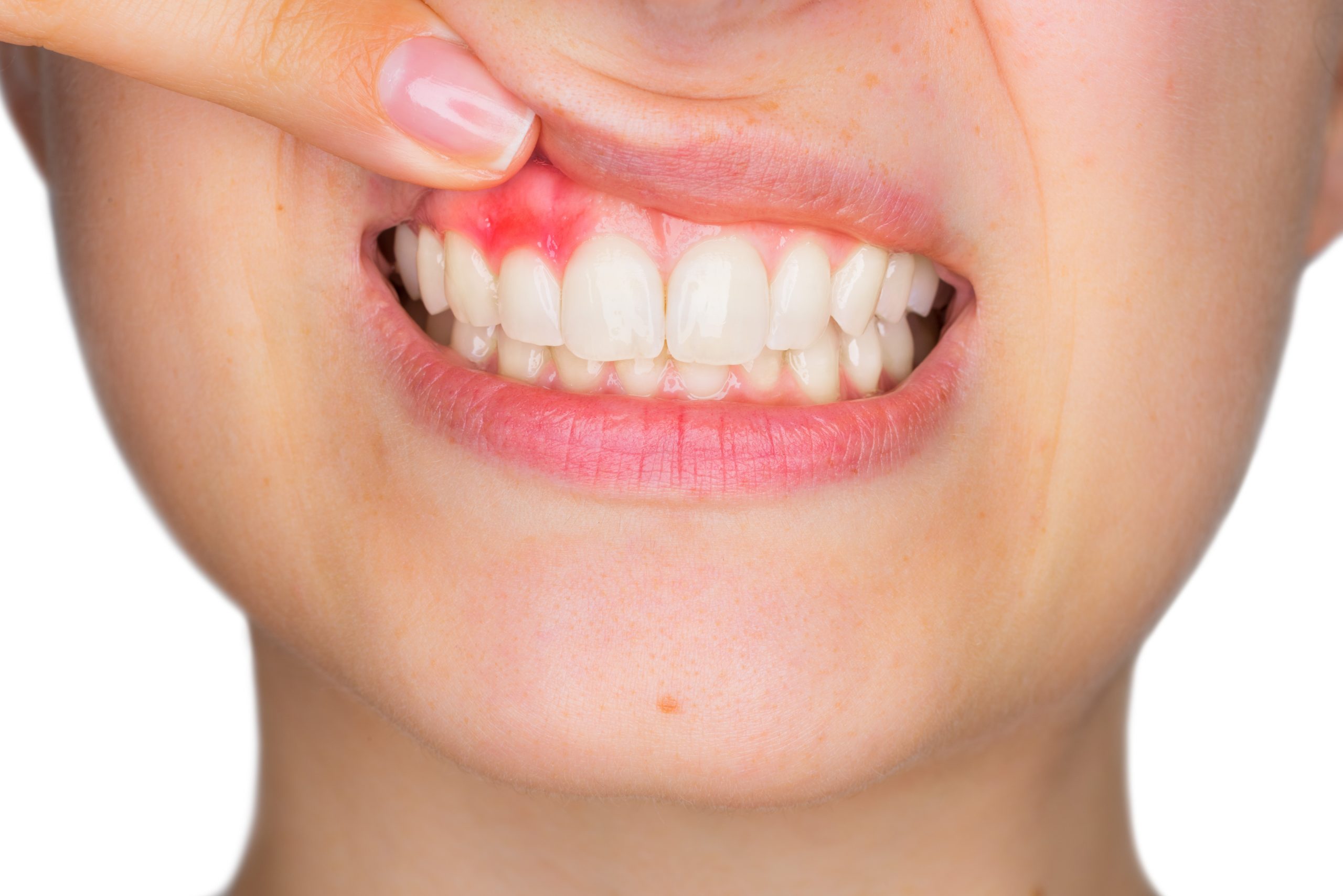
Gum disease is an infection of the gums that can lead to some serious health issues.
Gum disease occurs when bacteria grows in the mouth, and if left untreated, the condition can lead to some serious oral health issues, including tooth loss. In its early stages, gum disease causes inflammation and bleeding of the gums. As it advances, the disease can lead to severe infection and deterioration of the bones and connective tissues that hold the teeth in place. Read on to find out more about gum disease, its causes and symptoms, and how it can be managed…
What causes gum disease?
Gum disease is most commonly caused by a build-up of plaque, but there are a number of other factors that can contribute to its development. Hormonal changes, for example, can make the gums more susceptible to gingivitis. Certain health conditions, such as diabetes, can also place one at greater risk of developing infections, including gum disease. Poor oral hygiene also makes it easier for gum disease to develop, which is why it is so important to brush and floss on a regular basis. In fact, one of the best ways to prevent gum disease is to commit to good oral hygiene habits.
What are the symptoms of gum disease?
The early stage of gum disease is known as gingivitis. Gingivitis typically affects the surface layers of the gum, and causes symptoms such as bleeding, tender and puffy gums. If left untreated, gingivitis can advance to a more severe stage of gum disease known as periodontitis. Periodontitis causes the gums to pull away from the teeth and form pockets that are very susceptible to infection. Periodontitis is associated with inflammation and can cause serious damage to the teeth, gums and supporting tissues. Symptoms of periodontitis include bleeding and swollen gums, bad breath, receding gums, loose teeth and pain when chewing and biting.
Can gum disease be treated?
With the proper care, the early stage of gum disease can be successfully reversed. For this reason, it is very important that you see your dentist for regular check-ups. This will allow your dentist to identify any potential issues at an early stage and, if necessary, help you to improve your oral hygiene techniques, manage any symptoms that you experience, and provide the relevant treatment.
The effects of periodontitis, on the other hand, cannot be reversed. Severe gum disease can, however, be halted and controlled with the proper care. If you have been diagnosed with periodontitis, we recommend that you come in for regular dental examinations so that your dentist can check the depth of your gum pockets and guide you towards better overall oral health.
How can we help?
At Iris Dental, we provide treatment for gum disease, as well as check-ups and cleans. We encourage all of our patients to come in for regular check-ups so that we can help maintain good oral health in the long term. Each check-up includes a thorough cleaning of all surfaces of the teeth; removal of tartar and disease above and below the gum line; stain removal; professional polishing of the teeth; an evaluation of overall gum health; fluoride treatment; and personalised dental hygiene instructions. We also provide all of our patients with a take-home care pack that includes a toothbrush, floss, and travel case. For more information on our general dentistry, please have a look here.
If you would like to make an appointment to see us, please don’t hesitate to get in touch.
